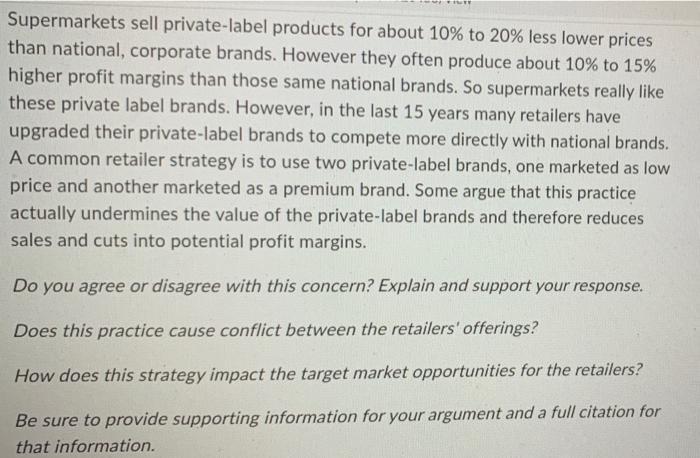Answered step by step
Verified Expert Solution
Question
1 Approved Answer
Supermarkets sell private-label products for about 10% to 20% less lower prices than national, corporate brands. However they often produce about 10% to 15%

Supermarkets sell private-label products for about 10% to 20% less lower prices than national, corporate brands. However they often produce about 10% to 15% higher profit margins than those same national brands. So supermarkets really like these private label brands. However, in the last 15 years many retailers have upgraded their private-label brands to compete more directly with national brands. A common retailer strategy is to use two private-label brands, one marketed as low price and another marketed as a premium brand. Some argue that this practice actually undermines the value of the private-label brands and therefore reduces sales and cuts into potential profit margins. Do you agree or disagree with this concern? Explain and support your response. Does this practice cause conflict between the retailers' offerings? How does this strategy impact the target market opportunities for the retailers? Be sure to provide supporting information for your argument and a full citation for that information.
Step by Step Solution
★★★★★
3.40 Rating (166 Votes )
There are 3 Steps involved in it
Step: 1
Answer A national brand is a prominent or established product while a private label or store brand is an exclusive product made or acquired for sale through a particular provider Retailers commonly se...
Get Instant Access to Expert-Tailored Solutions
See step-by-step solutions with expert insights and AI powered tools for academic success
Step: 2

Step: 3

Ace Your Homework with AI
Get the answers you need in no time with our AI-driven, step-by-step assistance
Get Started


